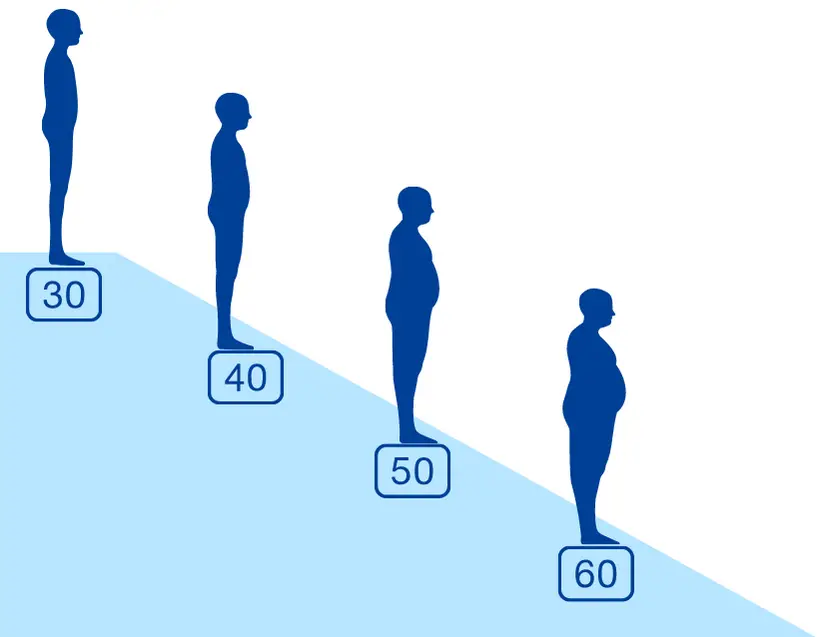Ever heard that your physical peak is age 30? And it’s all downhill from there?
I’ve heard it too. (My 30th is creeping up fast. Yikes!)
Maybe this sounds familiar: “Once you reach my age, your body just stops burning calories. Your metabolism slows to a crawl. It’s impossible to lose weight, gain muscle, or stay in shape.”
Visually, it might look something like this:

Fortunately, this isn’t how our metabolism works.
Just the Facts
Recently, Science published a landmark study on metabolism. (Generally speaking, metabolism is how much energy your body uses to stay alive).
Researchers discovered that the human metabolism stabilizes between ages 20 and 60. It’s faster before age 20 and very gradually slows after age 60.
In simple terms: Metabolism stays the same from age 20 to age 60.
What it Means
The findings explain the “Freshman 15” weight packed on by college students. Their metabolisms slow and Mom can’t coerce them to eat their veggies anymore.
But metabolism isn’t to blame for the yearly 1-2 lb weight gain for middle-aged adults. Although research indicates that holiday weight gain is one culprit!
Why Do We Gain Weight?
Weight gain occurs with a positive energy balance. If calories in > calories out, we gain weight. If calories in < calories out, we lose weight. Negative energy balance causes weight loss (and sometimes muscle loss).
In adulthood, many factors lower our activity levels or push us towards unhealthy eating habits:
- A demanding career
- Family responsibilities
- Bad knees
- Parenthood
- Running a business
- Sciatica
- Health problems
A Word From the Wise
Many of my patients are in their 50s and 60s. Some lament neglecting their health for decades. Others took great care of themselves and anticipate many active years ahead. I haven’t met anyone who regrets staying active and eating healthy.
Now What?
How does this new research apply to our daily lives?
1. See the Positive: This study is great news! It means that fitness isn’t just a young person’s game. Whether your goal is losing weight, gaining muscle, or moving more, your metabolism won’t stop you.
2. Take Stock: How is your health? Where are you succeeding, and where can you improve? Regular exercise and healthy nutrition don’t guarantee perfect health. But smoking, sitting too much, and eating junk food consistently cause health problems.
3. Take Action: Now is a great time to refocus on your health. Start small and stay consistent. Better health, like success in most areas, happens slowly through patient, consistent effort. You can do it!
For more evidence-based insights you won’t find anywhere else, join the free, fast-growing Facts & Physio Newsletter. Plus, get The Recovery Checklist when you sign up.

